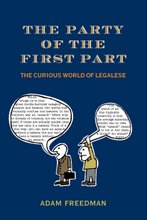Grand
As in Larceny, or Jury, it simply means "big" (it comes from the French grand). A Grand Jury, for example, traditionally has 24 jurors, making it much more grand than the Petit Jury.
Under Medieval common law, Grand Larceny referred to the theft of any property worth 13 pence or more; anything less was "Petit Larceny." The distinction mattered because Grand Larceny had a mandatory death sentence.
Common law courts refused to increase the 13 pence definition of Grand Larceny. That was all well and good in the Middle Ages but -- what with inflation and all -- putting a man to death for stealing 13 pence began to look a little extreme. One English wit noted that, while everything else became dearer, a man's life kept getting cheaper. The ancient definition held up in England, and in America, until the early 19th Century.



